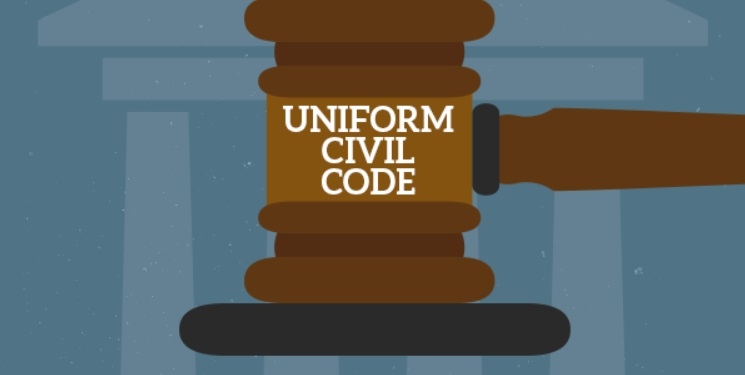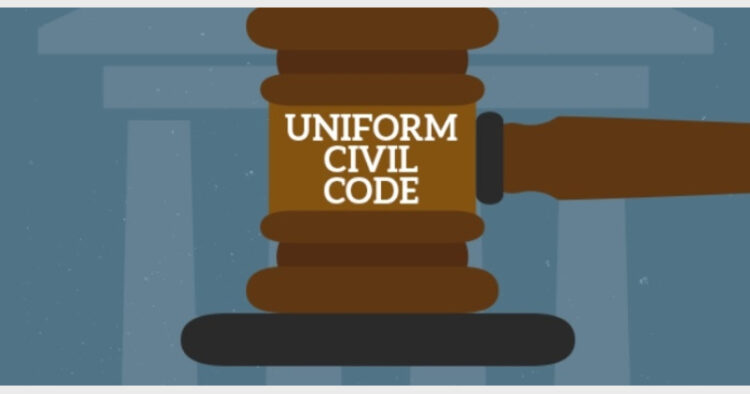We have a uniform and complete Criminal Code operating throughout the country, which is contained in the Penal Code and the Criminal Procedure Code. We have the Law of Transfer of Property, which deals with property relations and which is operative throughout the country. Then there are the Negotiable Instruments Acts: and I can cite innumerable enactments which would prove that this country has practically a Civil Code, uniform in its content and applicable to the whole of the country. The only province the Civil Law has not been able to invade so far is Marriage and Succession.” – Dr B R Ambedkar, Constituent Assembly Debates (Proceedings), Vol VII, November 23, 1948

The Delhi High Court has stressed the need for a Uniform Civil Code (UCC) and directed that its judgment be communicated to the Secretary of Ministry of Law & Justice “for necessary action as deemed appropriate”. The remark has brought back the debate on UCC to the forefront, within a few months of Chief Justice of Bharat making similar assertions and lauding the UCC applied in Goa. Earlier, on many occasions, courts have pushed for introducing Civil laws that would be uniformly applicable to all the citizens. Unfortunately, right from the Constitution framing days, the debate revolves around the rights of a privileged religious minority group. What we need is a more serious and sensible debate on the UCC.
Interestingly, the recent case in which the Delhi Court expressed that Article 44 of the Constitution ought not to remain a mere, was not about the personal religious laws but a tradition of the tribal community pertaining to marriage and divorce. Though the marriage was solemnised as per the Hindu Marriage Act, the Act does not apply to the couple as they belong to the notified Scheduled Tribe was the argument by a wife against the divorce petition by her husband. The court upheld the view but recommended the UCC. The case is a clear indication that the UCC is not just about personal religious laws. Of course, the conflicts and discriminatory provisions in various personal laws is an issue but not the sole issue. Traditions, customs and practices among the broader Hindu fold should also be part of this debate.
Since 1986, when in the Shah Bano case, the Constitution Bench of Hon’ble Supreme Court brought the issue of ‘status of women getting degraded in the society’ at the centre of discussion on UCC. Sadly, the debate again got tangled around the secularism-communalism rant, just because the case was about a Muslim couple. The then central Government, acting under pressure from fundamentalists, responded with a separate law for the maintenance of Muslim women without actually ensuring equal status for the targeted group. Since then, the issue is hijacked in the name of secularism. Despite repeated aspersions by the Courts, no serious attempts were on the legislative front. Only recently, when in a similar case, a court asked to frame a law, instant triple talaq was declared as a criminal offence.
The court was correct when it made an observation that the modern society in Bharat is “gradually becoming homogenous” and “the traditional barriers of religion, community and caste are slowly dissipating.” We already have a common criminal code. On issues related to land disputes, we have common laws. As Dr Babasaheb Ambedkar explained, we virtually have common laws for all the citizens except for marriage, divorce, and succession. The state of Goa has a Common Civil Code. Despite having a substantial Christian population and unique traditions, it has not impacted any community adversely. The issues of the dignity of women and integrating diverse practices in the code applicable to all are the real concerns that we need to address and not about promoting the separatist mindset in the name of personal laws. We should think about coming up with a model code and build a consensus around it instead of revolving in the trap of fake-secular discourse that promotes communalism.
@PrafullaKetkar













Comments